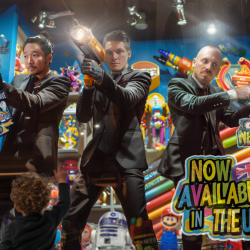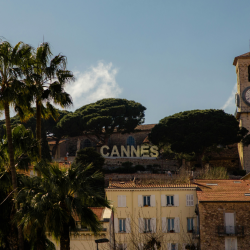There’s a certain irony to being invited to turn my mind to what I’d like to see the back of from the events industry in 2023, when a couple of years ago we to all intents and purposes had no industry. But then again, what better opportunity to execute a little spring cleaning than at a time when events are coming back bigger and stronger than ever. The latest IPA Bellwether report put events as the top-performing marketing category in Q4, and suggests it will see the highest growth this year. The continued resurgence of the sector is hugely exciting, yet it is still shocking how casually some brands approach its planning.
For the past decade or more I’ve been having the same conversations with marketers who misunderstand some fundamental issues about events as a marketing vehicle so here, for what it’s worth, allow me to consign a handful of particular bugbears to the proverbial Room 101.
Unrealistic ideas about measurement
There is an unfortunate fixation with measurement in all elements of advertising. This is chiefly so marketers can have a cast iron rationale for the money they’ve spent, whereas in events the chief concern should be whether the consumers enjoyed the experience. Many of the activations that we do see us take the product into a space where people are having a great time, and we get them to consider the brand in an appropriate environment. ‘Consideration’ isn’t defined as being given a sample and it suddenly becoming your favourite brand, it simply means something has shifted and the brand moved up a notch or two in an invisible continuum. You don’t know where you started or where you’ve ended up.
Sure, we could interrupt their evening by asking them whereabouts they sit on the consideration scale but funnily enough regular consumers neither think in those terms nor would even know how to articulate so all we’d really achieve is ruining the experience.
Let’s start having different conversations about measurement — be realistic about what we want to measure and why so that we can actually determine the success or effectiveness of the activity.
Sponsorship platforms based on ‘what we’ve always done’
I was in a conversation recently where I questioned why a brand was aligned with a particular event and was told ‘we’ve always sponsored it’. That was as deep as the insight went and was based on absolutely nothing beyond the personal interests of the CEO. Sponsorships of events — maybe a sporting event or a music festival — involve significant amounts of money and a brand’s involvement should be considered long and hard. Brands have to turn up at festivals and events as participants, not just as a logo that appears on everything. We do a lot of festival activations and will always hold the brand’s feet to the fire to really stand shoulder to shoulder with the consumers.
As a brand, find out what your target audience is passionate about then show up in those spaces and join in. Don’t make the conversation about you and don’t expect plaudits or credit simply by virtue of existing. You have to go along there and show you’re as into it as your audience is. There are still a surprising number of brands that don’t understand that the role of the sponsor is to be a participant in the experience, not someone who throws their weight around because they’ve paid money.
Content as an afterthought
This generally applies to conferences and internal events and so is something I am absolutely ready to leave behind. Clients all too often find a location, hire a venue, block out a fixed number of days and only then turn to how they’re going to fill the time. What you’re doing then is arbitrarily allocating a period of time and then finding content to fill it.
Content by definition means anything that fills a void. We are a content-driven society and every platform, be it TV, news, music, movies or social, is geared towards generating content, which completely devalues what people get from it. And so from an experience perspective, the content being in any way an afterthought or something that will be devised later, is absurd. I would love for the content meetings to happen first in any kind of an event or experience planning, just to ensure it’s at the heart of the campaign to promote the brand. The event should be designed in order to deliver, share, and amplify that narrative.
Events are one of the most significant, meaningful and valuable tools in your arsenal as a marketer but it’s all too often painfully unconsidered. Let’s have a little more prioritisation of the storytelling and the detail of what a brand wants to deliver. If we can nail this, the rest of the pain points may just fix themselves.
Featured Image: Wendy Wei / Pexels





























